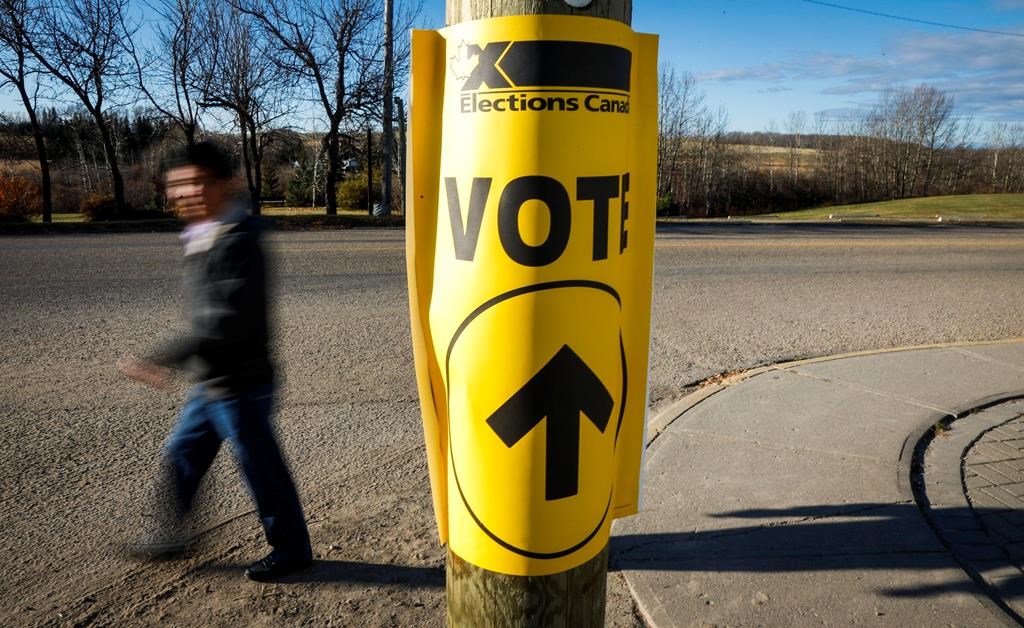Labour Day will come and go, and while Canadians are trying to squeeze some fun out of the last few days of Summer, we are going to be plunged into the federal election.

We may have voted for hope, optimism and sunny days in 2015 but Canadians don’t appear to be very optimistic heading into the Fall of 2019.
Canadians do see a strong economy right now. Assessment of their personal finances has gone from 32 per cent positive (Q4 2015) to 46 per cent today and their assessment of their job security has grown from 39 per cent positive (Q4 2015) to 52 per cent today.
On the eve of the writ dropping, one would assume from these numbers that the federal Liberals would very much like to have the 2019 ballot question be: “Are you better off today than you were four years ago?”
READ MORE: Most Canadians feel society is ‘broken,’ politicians don’t care about them, Ipsos poll says
But it won’t be, because despite these views and some impressive economic numbers at the macro level, Canadians aren’t optimistic about their longer-term prospects. Pocket-book issues and concerns over affordability are a common thread connecting most of the top issues Canadians identify as priorities: healthcare, the economy, housing, climate change, and taxes.
In short, the economy is better today but we don’t think it is good enough to withstand future challenges. We feel our household and country’s economic progress over the last four years has been built on a house of (credit) cards and it is only a matter of time before the crash.
- Daylight saving time 2026: Here’s when you should set your clocks forward
- Conservative MP searches for ‘antifa’ in federal government, Canadian Armed Forces
- Liberals survive confidence vote as House passes budget implementation bill
- Canadians stranded in Puerto Vallarta after violence disrupts flights home to Edmonton
Our concerns are more than economic. There is deep angst about the direction of the country. Canadians are questioning the value and the very role of government, politicians and political parties in their lives and many politicians are going to run into the buzz saw of growing cynicism once they start knocking on doors. For starters:

Get daily National news
- 67 per cent (unchanged since 2016) agree that the country’s economy is rigged to the advantage of the rich and powerful
- 61 per cent (vs. 56 per cent in 2016) agree that “traditional parties and politicians don’t care about people like me”
- 57 per cent (vs. in 47 per cent November 2016) say the country is “going in the wrong direction”
- 52 per cent (up dramatically from 37 per cent in 2016) agree that “Canadian society is broken”
This level of angst and cynicism among Canadians is going to pose a challenge for all political parties. Delivering policy ideas along with messaging to motivate supporter turn-out will be difficult, and they will need to find a balance between positive, forward-looking messages and empathetic, “we get you now” messages.
Imagine if you were a federal candidate hearing this at the door while looking for a vote: “I think the economy is stacked against me, I don’t think you care about me, I think our society is broken and our country is headed in the wrong direction. Tell me how you are going to fix this and why I should vote for you?”
Given the current climate, it’s hard to imagine a positive policy discussion taking place over the next few months. It is, however, easy to imagine a lot of mud-slinging and “don’t vote for the other team” messaging. All of which will lead to more cynicism and more of a disconnect between Canadians and their government.
On Oct. 21, Canadians may “Choose Forward,” they may choose to “Get Ahead,” or they may choose another option, but it sure feels like if “None of the Above” was put on the ballot, it would be a safe bet to win a majority.
Mike Colledge is president of Ipsos Public Affairs, Canada.
The poll data is based on findings of a survey conducted in 27 countries via Global Advisor, the online survey platform of Ipsos, between March 22 and April 5, 2019. The sample consists of 1,000+ individuals in each of Australia, Brazil, Canada, France, Germany, Great Britain, Italy, Japan, Spain, and the U.S., and of 500+ individuals in each of the other countries surveyed.
The data is weighted so each country’s sample composition best reflects the demographic profile of its adult population according to the most recent census data, and to give each country an equal weight in the total “global” sample.
The precision of online surveys conducted on Global Advisor is measured using a Bayesian Credibility Interval. Here, the poll has a credibility interval of +/-3.5 percentage points for countries where the sample is 1,000.








Comments
Want to discuss? Please read our Commenting Policy first.